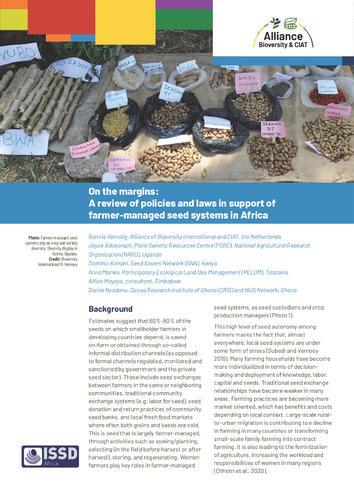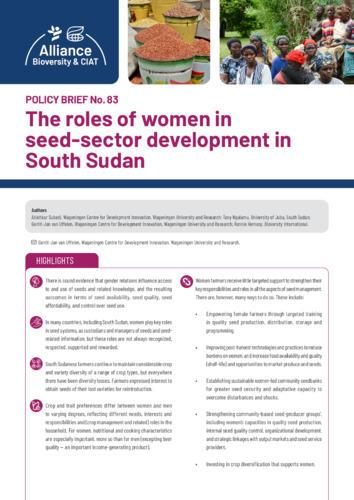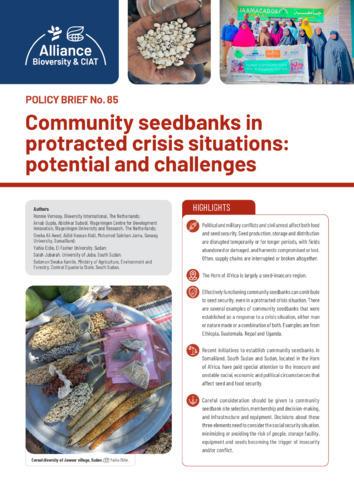Research Articles Women are Key to Seed Sector Success in Africa
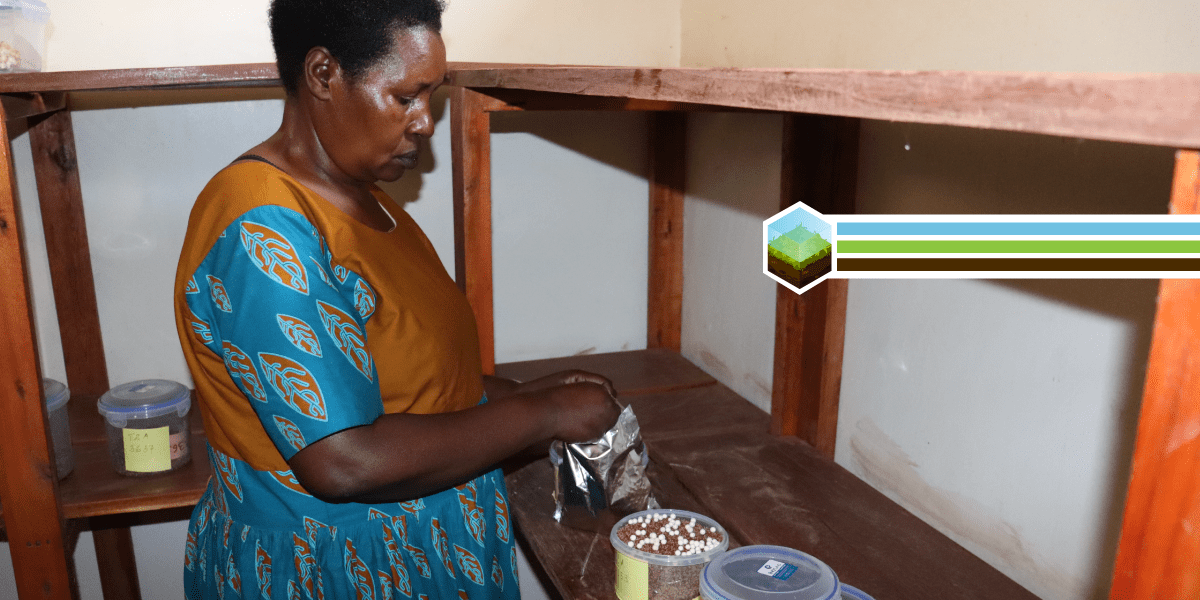
Women are vital to seed sector development across Africa, including in community seedbanks, but they receive little recognition and very limited support. A series of policy briefs show how women’s efforts are contributing to seed and food security; community development and peace building.
By: Andrew Wight
According to World Bank statistics, the female share of labor in crop production across Ethiopia, Malawi, Niger, Nigeria, Tanzania, and Uganda is about 40%, but demographic changes are transforming the region.
Women farmers play key roles in farmer-managed seed systems, as seed custodians and crop production managers. Women are especially important in community seedbanks, which conserve crop varieties cultivated and improved by farmers. This has ramifications beyond the community level: Alliance scientist Ronnie Vernooy notes that community seedbanks can be integral parts of national conservation systems, serving as coordinating platforms that bring together farmers, plant breeders, genebank managers, and others.
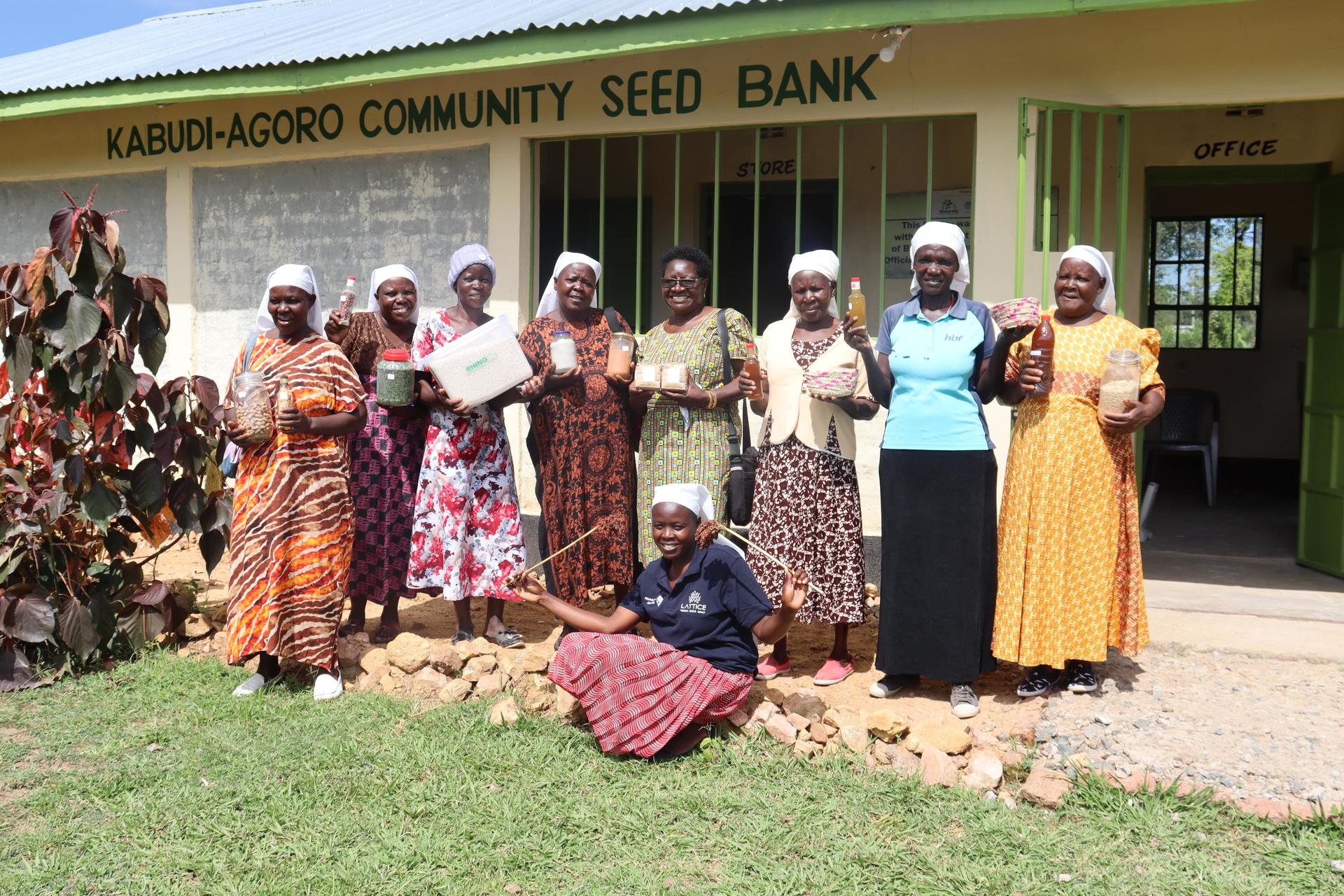
Management team of the Kabudi-Agoro community seed bank, Kenya. Credit: Alliance of Bioversity International & CIAT/R. Vernooy.
But to what extent has the role of women been considered in policies to support seed systems? Reviewing the context in 14 countries across sub-Saharan Africa, Alliance researchers found that there is attention paid to the roles of women in agriculture at large, with women-centered initiatives designed in 11 of the 14 countries. However, for the most part, effective gender-sensitive and women-supportive policy implementation is largely absent - only Mali pays specific attention to the roles of women in seed systems.
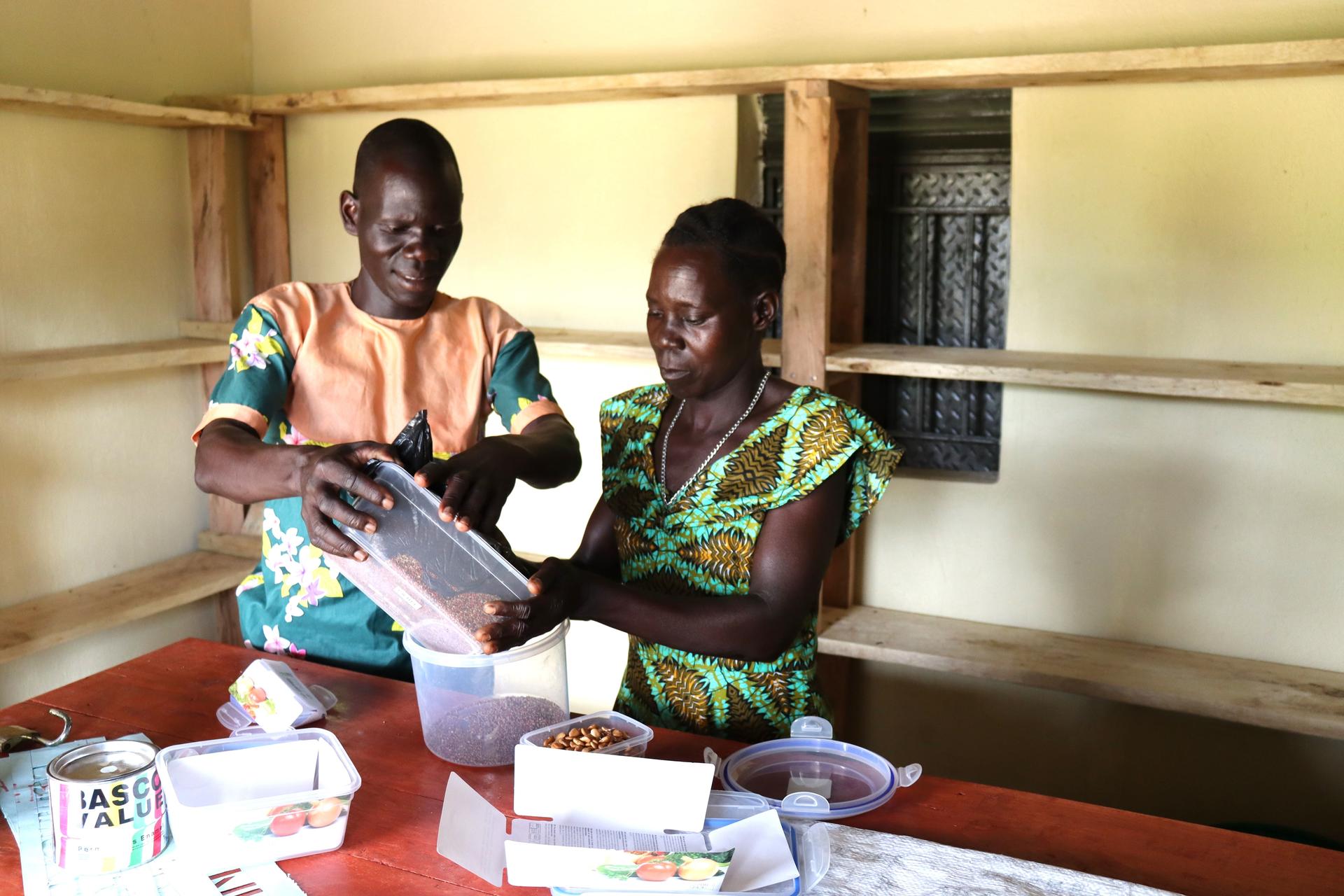
First seeds for the new Nyatonzi community seed bank, Uganda. Credit: Alliance of Bioversity International & CIAT/R. Vernooy.
For example, in 2011, the government of Mali passed its National Gender Policy to address issues faced by women when accessing the seed system. The policy states that all women must have access to seed resources for agricultural commodity production nationwide, but implementation has been slow and monitoring limited.
Understanding crop preferences in South Sudan
Recent seed system studies carried out in South Sudan offer deeper insights into the key roles of women in the management of seed systems. Crop and trait preferences differ between women and men to varying degrees, reflecting different needs, interests and responsibilities and (crop management and related) roles in the household. Such differences should be taken into account when designing seed system interventions, such as the establishment of a community seedbank or a farmer-managed seed enterprise.
For example, for women, nutritional and cooking characteristics are especially important, more so than for men (excepting beer quality — an important income-generating product).
Currently, women farmers receive little targeted support to help them with seed management, but the researchers found that targeted training, improved post-harvest technologies and practices to reduce burdens on women could help immensely.
The researchers hope that establishing sustainable women-led community seed banks will lead to greater seed security and adaptive capacity to overcome disturbances and shocks. In the same vein, strengthening community-based seed-producer groups’ could improve women’s capacities in quality seed production, internal seed quality control, organizational development, and strategic linkages with output markets and seed service providers.
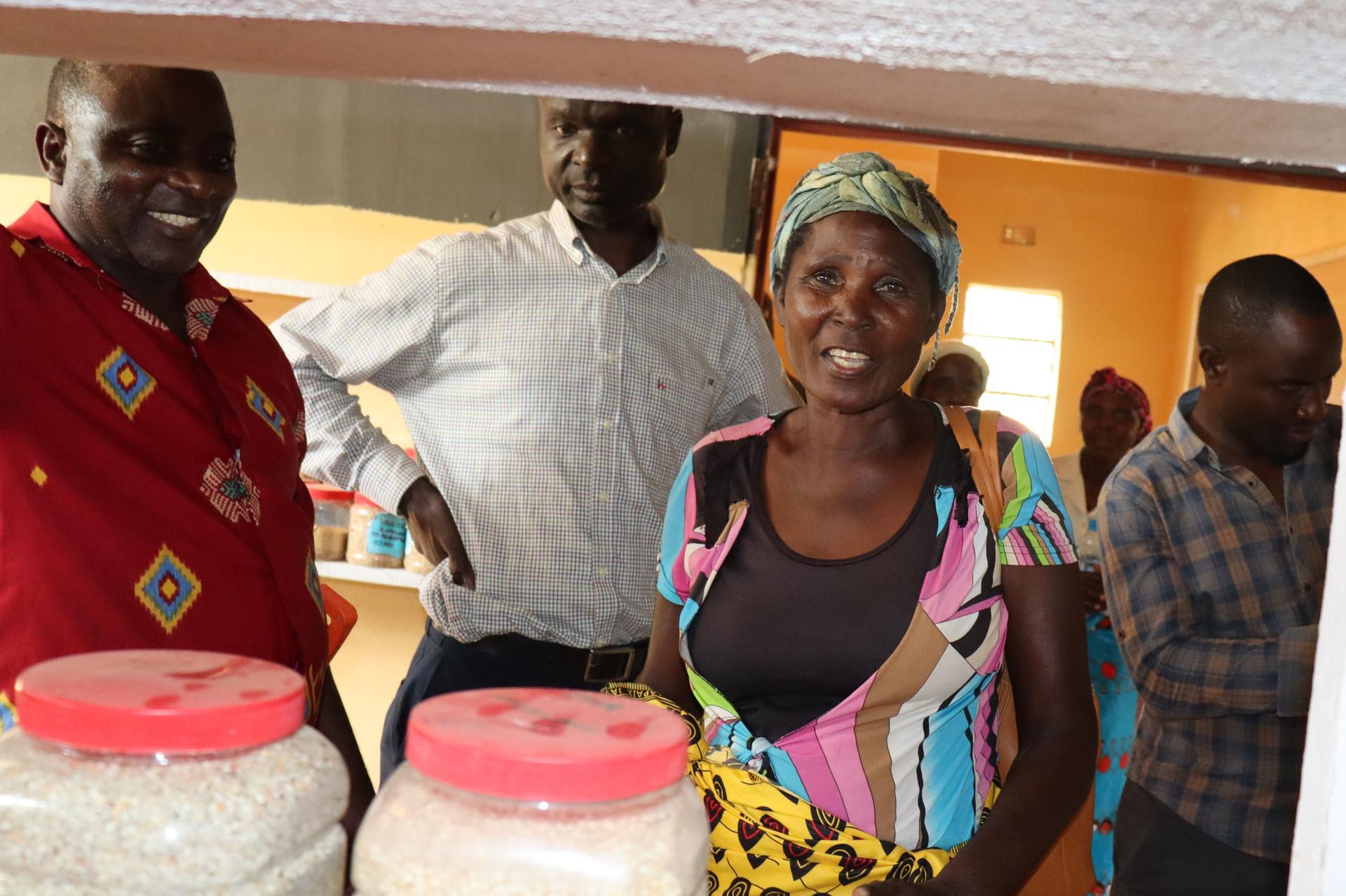
Kayuni camp community seed bank, Zambia. Credit: Alliance of Bioversity International and CIAT/R. Vernooy.
Overcoming disruption in the Horn of Africa
Political and military conflicts and civil unrest in the Horn of Africa have disrupted seed production, storage and distribution, but women working in community seedbanks could help ease those problems.
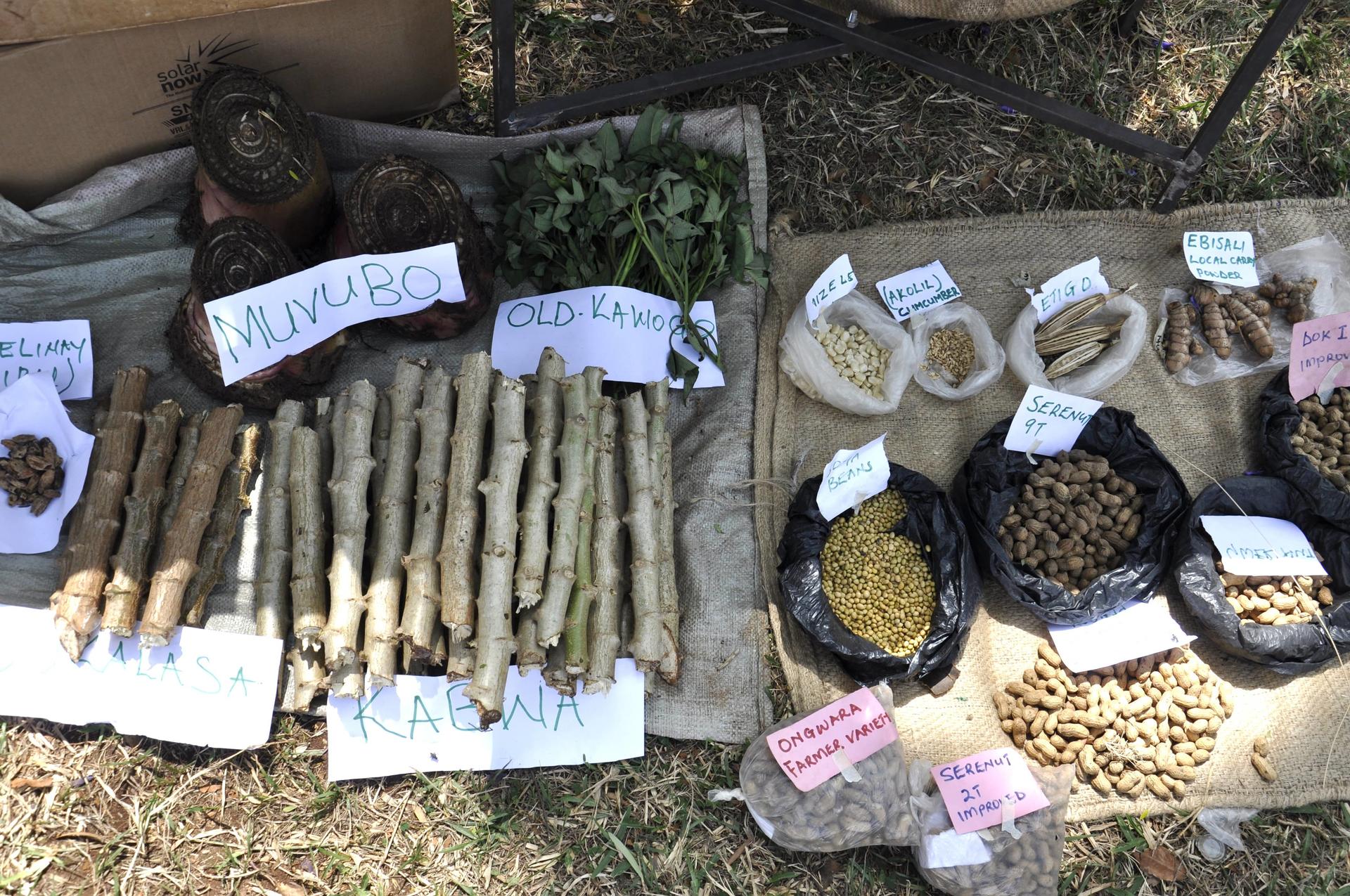
Farmer-managed seed systems rely on crop and variety diversity. Diversity display in Hoima, Uganda. Credit: Alliance of Bioversity International and CIAT/R. Vernooy.
Meet Ronnie

Ronnie Vernooy
Senior Scientist, Genetic Resources and Seed PoliciesFor example, women seedbank members returned home with a message for their households: that it is important for communities to share information and seeds, including restoring varieties that have disappeared from their villages.
Although the current situation in the region remains insecure, researchers working on seed sector development for government and non-government organizations alike are convinced that community seedbanking could also be extended all over Darfur and Sudan, and even to Chad and Central Africa.
The hope is that new seed sector development initiatives can be accompanied by promoting women’s organizations, including those representing pastoralist women, to empower them to meaningfully participate in local and state-level peacebuilding platforms.
Header Image: Adding zeolite beads to seeds to reduce moisture. Hoima community seed bank, Uganda. Credit: Alliance of Bioversity International and CIAT/R.Vernooy.


